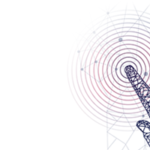Add this course to your organization’s subscription
Description
In 2024, the European Union succeeded in adopting the first comprehensive legislation on artificial intelligence on a global scale, also known as EU Artificial Intelligence Act (or EU AI Act). The quick expansion of artificial intelligence technologies across society has been one of the primary reasons for moving AI policy from a system based on ethics and standards to a legal framework. The impact of the EU AI Act will be broad, not only because it will be the first legally binding act worldwide but also because of its approach based on risk-assessment and enforcement structure. In this course, you will become familiar with the obligations and structure coming from the EU AI Act and understand its position and role in the broader picture of European digital policy. You will learn:
- The EU AI Act’s scope and structure.
- The EU AI Act’s risk-based approach and related obligations.
- The role of the conformity assessment and fundamental rights impact assessment.
- The enforcement of the EU AI Act.
- The connection between the EU AI Act and European data protection law.
- The role of the EU AI Act in European digital policy and on a global scale.
Note: This course is licensed from the Future of Privacy Forum.
Audience
AI Governance Professionals, Compliance Officers, Data Protection Professionals, General Counsel, Lawyers, Privacy Leaders
Meet the Author

Giovanni De Gregorio, PhD – Universidade Católica Portuguesa
Giovanni is an Associate Professor in Law and Technology at Católica Global School of Law and Católica Lisbon School of Law. His research interests include constitutional law, human rights, freedom of expression, and privacy and data protection law. Giovanni is the author of the monograph Digital Constitutionalism in Europe and Reframing Rights and Powers in the Algorithmic Society (Cambridge University Press 2022).





